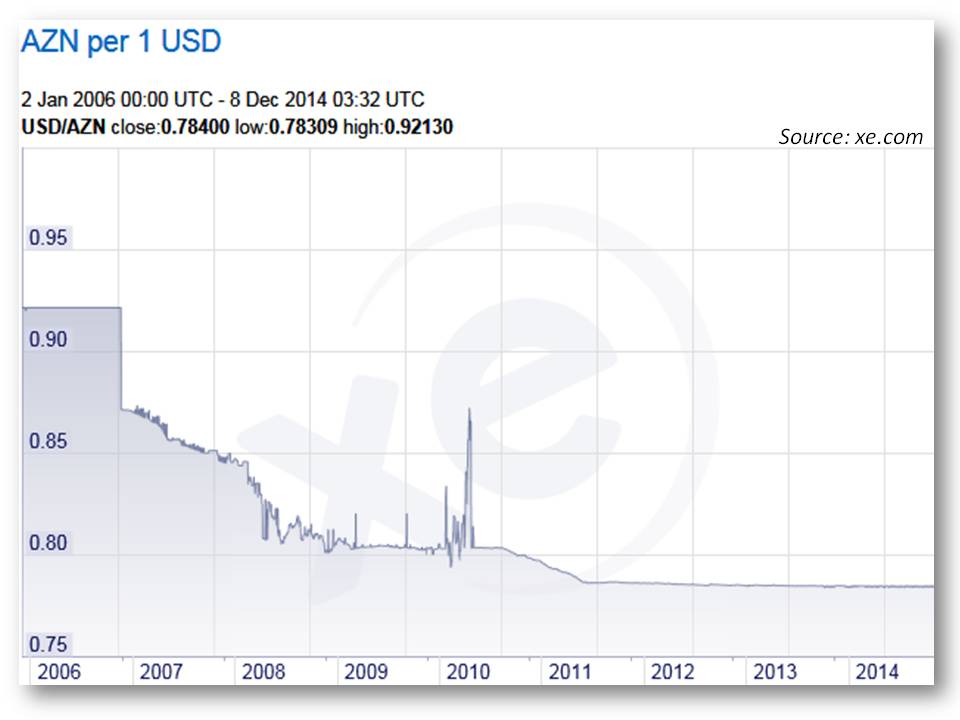I recently had a client approach me asking my thoughts on a Private bank offering them 8% for a 3 year term deposit held in USD.
My initial thoughts were it’s a scam,8%pa seems ridiculously high for deposits in AUD, but 8%pa in USD is ludicrous. Australian Term Deposits are around 4% for 3 years (with an RBA rate of 2.5% and the tailwind of cash hungry banks), by contrast, the US Fed Reserve rate is 0.25% and I would be surprised to see anything North of 2% but more likely around the 1%-1.5% mark. So what’s the catch?
At first glance, there is no catch, the bank is a prominent private bank based in Azerbaijan, one of the Post Soviet States, and if you had watched the Eurovision song contest in 2012, you would know it’s up and coming and clearly not a country in the depths of depravity.
Current Deposit Rates
|
Deposit terms |
Annual Interest rates |
||
|
AZN |
USD |
EUR |
|
|
12 months |
7% |
6% |
4% |
|
24 months |
8.5% |
7% |
5% |
|
36 months |
11% |
8% |
6% |
Conditions seem pretty standard. No hidden fees, catches, high currency conversion fees
Why are rates so high?
An 11% return in the local currency (Manat), makes sense, the key risk of investment in a smaller (growing) currency such as the Manat is inflation, this can quash your returns overnight and you run the risk of governments restrictions on withdrawing the local currency in an aim to protect it from a rush of withdrawals. You need not look further than the Australian Dollar as a prime example of this (down 12% over the last two months).
It is further argued that the currency in question is pegged to a more stable currency to ensure its value doesn’t fall away. But times change and the pegged rate is adjusted and the value of a currency can still fall (more so, if it was unpegged).
So holding in USD, seems a good alternative, you don’t need to worry about the currency and you are receiving 8%pa, “Risk Free! “.
If you want to shop around, you can currently get 25%pa, (assuming you’re happy to hold your money in Argentinian Peso’s)
So, the natural conclusion at this stage is to fill your boots, 8%pa in a currency that isn’t going to disappear overnight (I’m sure budding conspiracy theorists will be all over me for this one).
Well, not so fast. It’s clear as to why a deposit in a currency such as the Azerbaijan Manat or Argentinian Peso would pay a higher return, but this still does not explain how a bank can afford to pay 8%pa on USD deposits. Unless they are taking huge risks investing that money somehow, they cannot afford to pay 8%pa, and banks are not in the business of taking huge risks with the money. The bank in question was a large reputable bank with strong political ties.
This finally came clear in a chat with a fund manager I know who had worked in some of the ex-Soviet States. He explained:
These smaller countries have a problem with their currency debasing and are therefore hungry for foreign currency which is more stable. That’s why they are willing to pay you over the odds for holding money in foreign currency and why they are willing to offer you a much greater return if you hold money in the local currency.
Since a bank leverages its returns on its loan book using its loan book as collateral, a run on the bank or a currency dropping dramatically can put them out of business very quickly. Foreign currency offers them greater security and ability to lend.
You also often find some link to royalty or politicians as a way of reassuring investors of some perceived security. The reality is there is a lot less than you would expect.
Kazakhstan BTA bank is a prime example of how things can go wrong; The bank, once the country’s largest and considered one of the strongest in the region, defaulted in 2009 and the Chairman, who’s political links were considered to be reassuring, was later accused of embezzling Billions and the primary instigator of the bank’s losses.
I just don’t think it’s worth the risk, the risks are not something we in a developed economy are able to assess properly. But if you did, hold it in offshore currency and note that the higher returns reflect the higher risk of the banks going under.
Currency debasing is a big issue that could create a run on a bank and cause it to go under, so holding in USD doesn’t necessarily protect you.
There are often local subsidiaries of large well known banks such as HSBC doing the same thing but practically speaking, they are governed by local laws and would only likely to be bailed out for reputational reasons.




Comment: